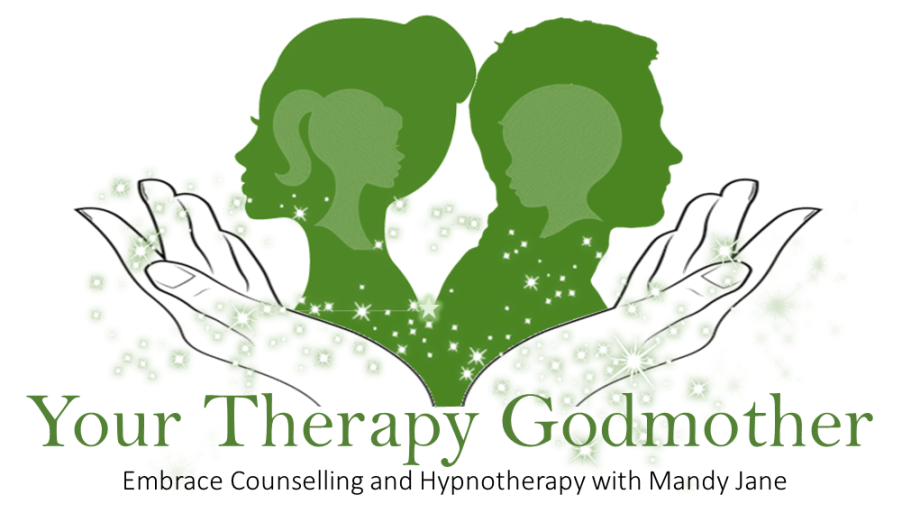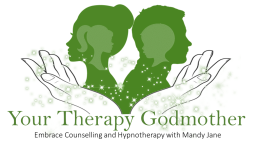Re-parenting Your Inner Child
Mandy Jane Lynch
Your Therapy Godmother - Counsellor / Coach / Hypnotherapist
Re-parenting Your Inner Child
Many clients struggle to understand why they feel fine one moment and get really upset the next. This may be explained as them having an adult in a wounded child. The adult is a metaphor for the part of the brain that is rational, lives in the present moment and sees things as they are right here and now.
Whilst the wounded child is a metaphor for the part of the brain, the unconscious that contains the unhealed emotional wounds from childhood and sees the present as the past.
Significant unhealed childhood wounds fester in the background until the stimulus in the present brushes up against them releasing a flood of repressed emotional pain that instantly turns your rational adult into an intentionally emotionally and irrational wounded child.........
Reparenting the Inner Child means learning to love, nurture, protect and set healthy limits with your Wounded Child and get the Adult back in charge........
Example of Inner Child Work and Healing
RESOLVING INNER CONFLICT
Individuals who grow up with a lot of dysfunction in their childhood often suffer from confusing and stressful inner conflicts. For Example: When Margaret's alcoholic Aunty Ethel asks for £50 Margaret wants to say No, but then she feels so anxious and guilty that she says yes. Almost immediately Margaret starts to feel angry with herself and guilty for giving away precious family money that she knows Aunty Ethel will only drink away.
This is a horrible situation for Margaret to be in and she just can't win! She feels sad if she gives Aunty Ethel the money and sad if she doesn't, all because of an inner conflict. So how can Margaret resolve such an inner conflict that keeps her sad?
Well first she needs to understand how her brain works. Margaret has a higher brain behind her forehead which metaphorically is called the Adult Brain and a lower brain behind the back of her neck which metaphorically is called the Wounded Child Brain. Both parts of her brain produce thoughts however the stories they tell are sometimes in conflict, particularly in stressful situations. Thoughts from the Adult Brain are flexible and based on what is actually happening the hear and now, the present. However, thoughts from the Wounded Child Brain are rigid and based on past pain in the form of simple stimulus / responses and fight, flight or freeze. So how does this relate to Margaret's inner conflict you may ask?
Well Margaret grew up with an alcoholic father and a depressed mother who were both unable to meet her needs. So, being an immature child, she concluded that there must be something wrong with her, otherwise, why would her dad always be angry with her, and why would her mother rarely pay attention to her? So logically, she decided to become what she thought her parents needed her to be, so she could finally obtain their love. In the process, however, she came to view her feelings and needs as THE PROBLEM, which is why even now as an adult she feels guilty if she even thinks of saying "no" to anyone because her Wounded Child Brain will scream at her that would be selfish, and then no-one would ever like her or love her.
So when Margaret finally decides to come to counselling / talking therapy and is very stressed and starts talking about what has happened to her the differences between her Adult Brain, her Wounded Child Brain and the inner conflict is explained. Margaret is taught how to weed out the distorted stories of the Wounded Child Brain from the accurate stories of her Adult Brain, so that she can see situations more clearly and then make better decisions for herself.
For Example:
Margaret was given a piece of paper and asked to make two columns. One was labelled "My Wounded Child" and the other "My Adult". Margaret was then asked to write down in the correct column the stories her Wounded Child is telling her about her Aunty's request for £50, keeping in mind that these stories are usually filled with fear and shame. Here is what was written:
MY WOUNDED CHILD
"If I say "no" to my Aunty, then I am being mean, selfish and a bad niece, which would make me a terrible person. And then she will be mad at me and stop loving me".
Next Margaret is instructed to write down in the second column the facts of the situation seen from her Adult Brain which can be difficult for someone who can't say no. So as a tip to help her identify the stories from her Adult Brain, I ask her to imagine that it is her best friend in this exact situation. "What advice would you give your best friend?"
MY ADULT
"I'd tell my best friend that £50 is a lot of money and his Aunty is only going to drink it anyway which would not be helpful for him or his Aunty. I would tell her that saying "no" would not be mean or selfish, but the right thing to do for both of them".
I then asked Margaret which story makes more sense to her and she said: "Well the advice I would give my best friend" which of course comes from her Adult Brain and most certainly be the advice that Margaret is more likely to follow.
What can Inner Child Work be helpful for?
- Learning Boundaries
- Learning differences between Passive Aggression, Aggression and Assertiveness
- Triggers and Behaviours
- Learning differences between Adult Self and Inner Child Self
- Learning to problem solve
- Learning Relationships
- Stress and anxiety
Why Use Inner Child Work?
Using the Emotional Detox Technique within hypnotherapy has been proven really successful in processing emotions and stress out of the body to be able to then work through issues one by one using a variety of techniques such as the control room, parts integration etc.
How does it work?
Please look at the following diagram and this shows what is happening when you are in hypnosis.

Contact us
E-mail: mandy@yourtherapygodmother.co.uk
Embrace Counselling and Hypnotherapy with Mandy Jane - 40 Vale Road, Rhyl, Denbighshire LL18 2BU
©Copyright. All rights reserved 2023 - Embrace Counselling and Hypnotherapy with Mandy Jane

